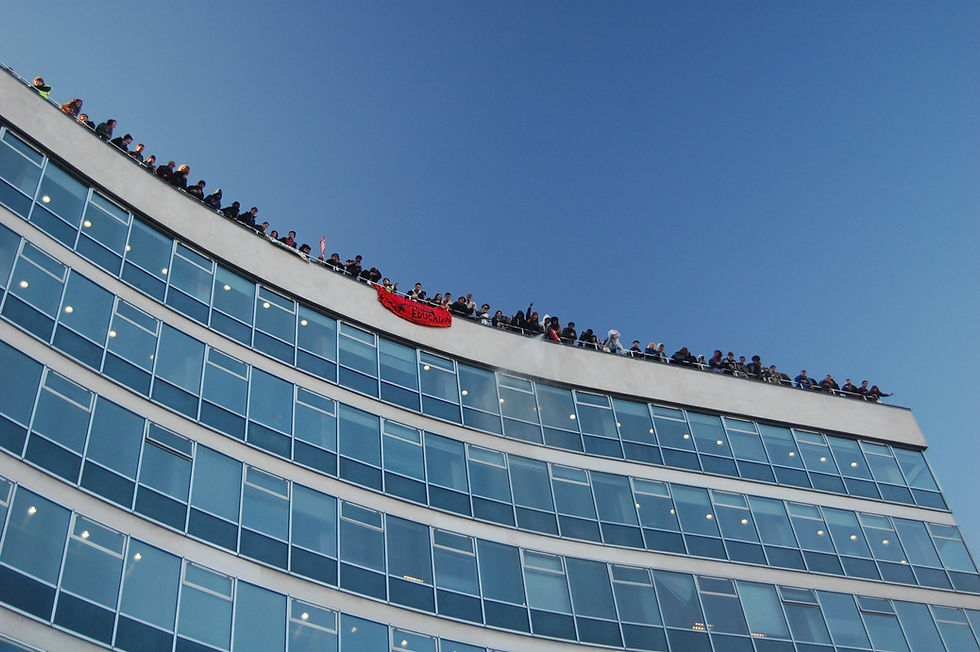Equality Demands Transport Capacity
- Nicholas Greenhalgh

- Aug 15, 2025
- 3 min read

If you drew up a list of some of the most significant societal changes of the past few hundred years you could find yourself thinking about any number of marvels. The expansion of the right to vote has enlarged our democracy, nationalised healthcare has stepped towards equalising life expectancy, a universal education system has facilitated the acquaintance of many with information and ideas that they would never previously have encountered etc etc.
All of these can be seen to have had an impact upon equality in our society and while equality, in either its of opportunity or outcome forms, has not been fully realised, great strides have been taken. I want to focus, in the context of such progress, on the prevalence of mass transport, and how limitations to passenger capacity stand in the way of equality.
To set the scene, we can say with certainty that buses, trains, and planes provide transportation on a scale far beyond what has been available historically. Whether it is for work or leisure, these modes of transport have become integral to our lives as individuals and social citizens.
In theory, mass transport could be a great equaliser. Giving access to opportunities that would otherwise have remained isolated and localised to their particular region, while hopefully doing so at a cost affordable to most. The cost of a ticket comes with its own regressive-tax complexities, but in terms of cost and geographic ease, we have been freed of restrictions that were once crushing to social mobility and its concomitant cause of equality.
Buses, planes, and trains are our very access to the world around us, promoting equality while doing so. I want to highlight an important structural challenge which, if left unaddressed, risks bottlenecking the equality that our transport systems can offer. This challenge lies in the unfortunately unsexy domain of rail network passenger capacity.
I recently had the pleasure of using the world’s oldest train system when I travelled to London to visit a friend. On the return journey, one of my trains was severely overcrowded and while the sight of people sitting on the train’s floor won’t be too shocking to many readers, it does indicate a problem: many have physical and mental needs which make the imbroglio of an overcrowded train simply impossible to deal with, rather than a mere obstacle to the consumption of a Burger King meal as it was for me.
Consider for instance a claustrophobe, or someone with sensory hypersensitivity due to everything from autism to chronic migraines, or wheelchair users. These purportedly equal citizens are stoppered from accessing employment, leisure and educational opportunities, which are rightfully theirs, for no other reason than overcrowding, which may well be in service of profit-maximisation for privatised rail companies. The structural issue of overcrowding, symptomatic of a system that lacks sufficient passenger capacity, stands as a challenge that must be addressed if we are to provide, equally to all, the public transport which is now more than 150 years old.
Sometimes, travel disruption is, of course, unavoidable. But the sardine can experience I underwent should be the exception that proves the rule, rather than a perennial problem.
We need a transport system everybody can use safely and comfortably. Failure to provide this risks not just inconvenience and discomfort, but also the exclusion of many members of our community. The ideal of equality of opportunity should not be tossed aside whenever a few too many people want to catch a train.
I imagine that there are lots of changes that could be made to our transport network that would be welcomed by many. But capacity, as I hope to have shown, must be amongst those changes contemplated, because as long as overcrowding remains a consistent possibility on our rail network, the full, freeing, potential of mass transport will not be fulfilled.
Bearing in mind all this, HS2’s amputation will be another setback for equality. Reduced passenger capacity will be not just an embarrassment in itself, but also an affront to those still denied equal access in this most modern of ages.
.png)



Comments